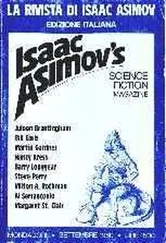Barry Longyear - L.A. in L.A.
Здесь есть возможность читать онлайн «Barry Longyear - L.A. in L.A.» весь текст электронной книги совершенно бесплатно (целиком полную версию без сокращений). В некоторых случаях можно слушать аудио, скачать через торрент в формате fb2 и присутствует краткое содержание. Год выпуска: 1996, Издательство: Dell Magazines, Жанр: Фантастика и фэнтези, на английском языке. Описание произведения, (предисловие) а так же отзывы посетителей доступны на портале библиотеки ЛибКат.
- Название:L.A. in L.A.
- Автор:
- Издательство:Dell Magazines
- Жанр:
- Год:1996
- ISBN:нет данных
- Рейтинг книги:3 / 5. Голосов: 1
-
Избранное:Добавить в избранное
- Отзывы:
-
Ваша оценка:
- 60
- 1
- 2
- 3
- 4
- 5
L.A. in L.A.: краткое содержание, описание и аннотация
Предлагаем к чтению аннотацию, описание, краткое содержание или предисловие (зависит от того, что написал сам автор книги «L.A. in L.A.»). Если вы не нашли необходимую информацию о книге — напишите в комментариях, мы постараемся отыскать её.
L.A. in L.A. — читать онлайн бесплатно полную книгу (весь текст) целиком
Ниже представлен текст книги, разбитый по страницам. Система сохранения места последней прочитанной страницы, позволяет с удобством читать онлайн бесплатно книгу «L.A. in L.A.», без необходимости каждый раз заново искать на чём Вы остановились. Поставьте закладку, и сможете в любой момент перейти на страницу, на которой закончили чтение.
Интервал:
Закладка:
“Sorry”
Janos Raeder brushed away the apology and the question with a wave of his hand. “It doesn’t matter. Look, Lyle, there are the miracle cures from terminal diseases you mentioned, and the stigmata, what you called those freaks squirting blood from their palms. Think about the very real cases of stigmata we have on record. These cases are similar to lycanthropy in that they involve actual hysterical alteration of fluids and tissues simply on the basis of a very intense belief.” He tapped the print once more. “And this. It is a very real, very painful, and quite debilitating condition. It can’t be cured, as far as we know, but it can be arrested, much like compulsive gambling or alcoholism.”
Lyle clasped his hands over his belly and slumped down in his chair. “I’m familiar with the cases. In fact, I’m pretty familiar with all of the literature on hysteria, and I’ve never run across anything like werewolves.”
Dr. Raeder pursed his lips, placed the glossy on top of his desk and dropped into his chair. “I’ll tell you why, Lyle. It’s for the same reason you’re dragging your anchor right now Just as no one would take alcoholism and addiction seriously as diseases back in the thirties, lycanthropic hysteria has been passed off as a moral problem, or hoax, for almost eighty years. That’s why this study, almost thirty years old, wasn’t taken seriously. It was never published and lit tle new work has been done in the field. There is simply no grant money available for research in this field. But just as those who wanted to recover from alcoholism back in the thirties put together their own therapy program in the form of Alcoholics Anonymous, thereby pioneering the treatments for a host of compulsive disorders, those who want to recover from lycanthropy are doing the same. I think the field is ready for a courageous new look at this problem.” He shrugged and held out his hands. “If you want a new thesis topic, it’s the best suggestion I’ve got in the shop. It will be new work and much more impressive than another herd of tired rats running through yet another maze.”
Lyle twiddled his thumbs for a moment, then leaned forward and held out a hand. “Could I look at that photo once more?”
Dr. Raeder allowed himself a slight smile. “By the way, Lyle, if you decide to go to the meeting, don’t make a point out of your being free of this condition. Also, don’t take any notes or bring a recorder. They are adamant about their anonymity, and for very good reasons. Finally, don’t call them wolfmen or werewolves. Call them lycanthropics. They are quite touchy about that.”
“What time is the meeting?”
“Eleven-thirty at night.”
“That late?”
Janos Raeder’s eyebrows went up. “You’re kidding. Midnight is the toughest time for lycanthropics. If nothing else, Lyle, this experience will be an excellent opportunity to raise your consciousness regarding the plight of a much neglected minority.”
There was plenty of time before the meeting, and, after an uninspired taco at the student center, Lyle put in a few hours at the university library. First he tackled the subject of stigmatization with examples beginning with Francis of Assisi in 1224 to Louise Lateau in 1868. The latter was a peasant girl whose case was investigated by Professor Lefebvre of Louvain. The girl’s “Christ wounds” began on April 24th, 1868 and bled regularly every Friday thereafter. The ability of the human organism to alter its tissues radically through intense belief was well established. What was not so well established was a degree of alteration sufficient to turn a human into a completely different species.
Search as he might, his pursuit of a work on quantum physics for dummies was fruitless. The only works available were either dripping with equations or too general to discuss the application in which he was interested. Reluctantly he resorted to pulling Chopra’s Ageless Body ; Timeless Mind from the shelf and paged through it. The thesis seemed to be that every cell of an individual’s body is constantly listening to what that individual is telling it. If you tell yourself “I’m too old for that kind of stuff,” the cells listen and you become “too old for that kind of stuff.” By the same token, if you decide to become more youthful, the cells listen and can actually reverse the aging process. Chopra wrote:
“You can control the informational content of the quantum field. Although there is a certain amount of fixed information in the atoms of food, air, and water that make up each cell, the power to transform that information is subject to free will.”
Lyle leaned back and scratched his head as he recalled the photograph Dr. Raeder had shown him. As scientists looked on, Roger Westlake supposedly just stood there, turned into a werewolf, and almost doubled his body mass in the process. All of that bone and tissue had to come from somewhere. By changing the informational content of the quantum field, would it be possible to convert that energy directly into mass? Several primitive cultures had shape-shifter traditions: men and women who turn themselves into snakes, eagles, bears, even wolves. Lyle leaned over the keyboard and began to tackle the subject of lycanthropy.
The computer subject search was not sympathetic to the term “lycanthropy.” The prompt insisted that if Lyle wanted to pursue the topic, “werewolves” was the term to use. The pickings seemed slim. Douglas’s The Beast Within, was filed under “Animals, mythical.” An 1865 work, Baring-Gould’s The Book of Werewolves, revealed its thesis in its subtitle: An account of a terrible superstition. Then Lyle’s eye was caught by another title: A Lycanthropy Reader: werewolves in western culture. Published in obscurity in 1986 by the Syracuse University Press, the work was described as “Medical cases, diagnoses, descriptions; trial records, historical accounts, sightings; philosophical and theological approaches to metamorphosis; critical essays on lycanthropy—” He looked up at the availability code and the Reader was out.
His eyes next turned to a 1937 work published in Paris by psychiatrist Jean Riendeau, English translation by Paul Norgren: The Hidden Face of Jeorg Brandt: a case study of a lycanthropic. The work was described as a three-year study of an unemployed Swiss laborer whose metamorphosis from man to werewolf was witnessed no less than nine times by Riendeau, four such times under confinement in laboratory conditions with corroborating witnesses. The volume was available.
It was a thin book, the embossed printing on its cover faded and gray, the pages inside edged with yellow Lyle scanned the table of contents, skipped the background material, and turned to the first of the laboratory controlled observations of Jeorg Brandt’s changing. Riendeau wrote:
“Jeorg was caged at his own request. The metamorphosis began shortly after midnight with Jeorg coming ‘alive’ from his usual deep depression, his increased animation followed first by the change of his eye color from blue to reddish black. His chest, normally at 120cm, showed 151cm on the tape before Jeorg swatted Dr. Bresette away from the bars where my colleague was taking the measurement. I saw the front of Bresette’s laboratory coat slashed to ribbons and turned back to see that Jeorg’s claws were already half-formed, his muzzle filled with horrendous teeth…”
Here it was again: energy consuming transformation, incredible increase in body mass, with no apparent source. Or, as Riendeau put it, “He seemed to draw upon the thin air for material,” although when the change was complete, Jeorg Brandt wolfed down 24kg of raw beef before he exhausted himself trying to get out of his cage and fell asleep. Later, as himself, Jeorg was horrified after reading the reports and seeing the photographs. It was after the fourth of these laboratory episodes that Riendeau’s subject committed suicide, unfortunately in full human form.
Читать дальшеИнтервал:
Закладка:
Похожие книги на «L.A. in L.A.»
Представляем Вашему вниманию похожие книги на «L.A. in L.A.» списком для выбора. Мы отобрали схожую по названию и смыслу литературу в надежде предоставить читателям больше вариантов отыскать новые, интересные, ещё непрочитанные произведения.
Обсуждение, отзывы о книге «L.A. in L.A.» и просто собственные мнения читателей. Оставьте ваши комментарии, напишите, что Вы думаете о произведении, его смысле или главных героях. Укажите что конкретно понравилось, а что нет, и почему Вы так считаете.











